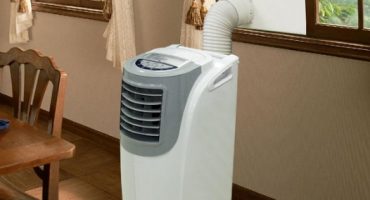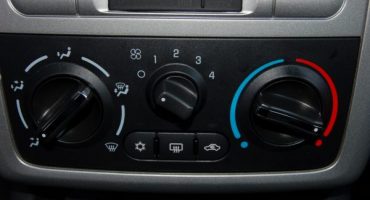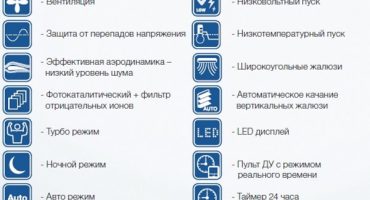A good air conditioner should produce only uniform, monotonous noise. Depending on the quality of a particular model, this noise may be slightly more or less noticeable to others. By ear, this is perceived as a quiet whisper, which subsequently a person does not pay attention to.

Air conditioner, consisting of 2 blocks: external and internal (split system)
But sometimes the air conditioner gurgles, starts to hum or make sounds atypical for him. This does not always mean serious damage to internal components. But it is very annoying and inconvenient to those who are indoors.
Custom air conditioning sounds
Air conditioning, in principle, cannot be completely silent, as marketers promise. Inside, there are many moving parts (bearings, motors and rotary mechanisms) that are noisy and almost impossible to mask with a housing or sound filters.
And although most non-periodic intermittent sounds do not say anything good, still some of them are completely safe and can be eliminated on their own.
Gurgles off
The main reason for the gurgling inside the air conditioner is the airing of the freon circuit. This can happen due to poor installation of the system, when the specialist did not carry out the entire amount of work.
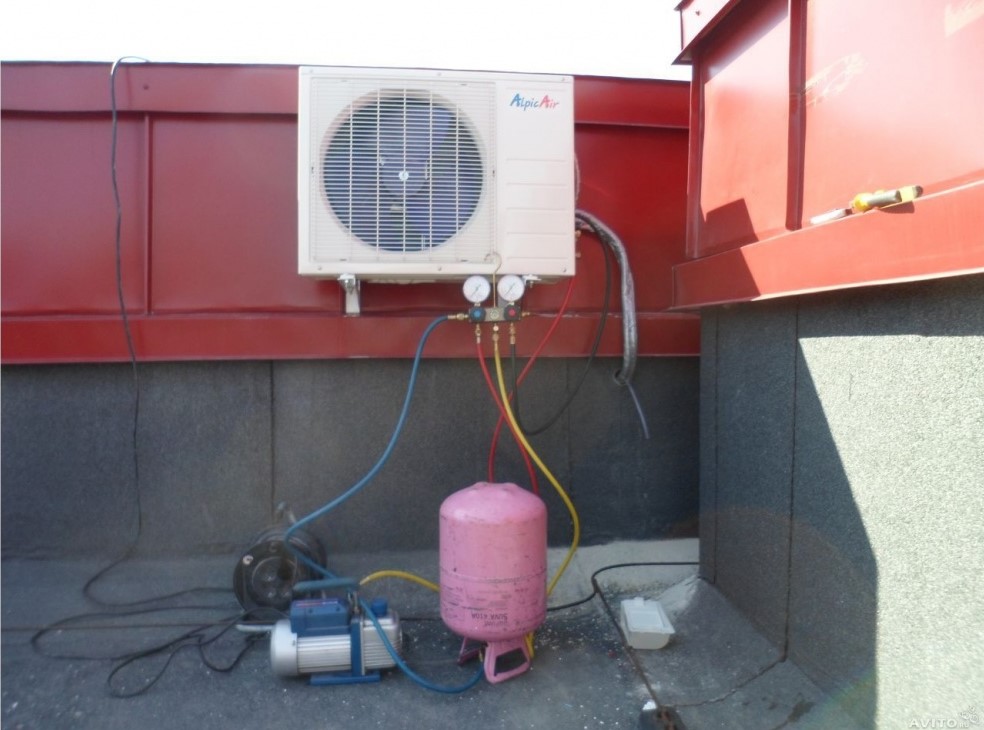
The process of evacuation of the freon trace
No evacuation, refueling of freon, poorly installed freon route were made. Insufficient tube length or strong bends that prevent fluid from moving. Then air jams form in the track, and when freon breaks them, a gurgling sound arises. Depressurization may also occur over time.
It is highly discouraged to independently blow off the tube and add fluid. For this, special equipment and experience in conducting such operations are needed.
Gurgles in the wind
If gurgling is heard only during the wind, this means that the air directed from the street comes through the pipes to the condensate bath. This produces a sound similar to the gurgling of water in a glass when air is blown into it with a tube.
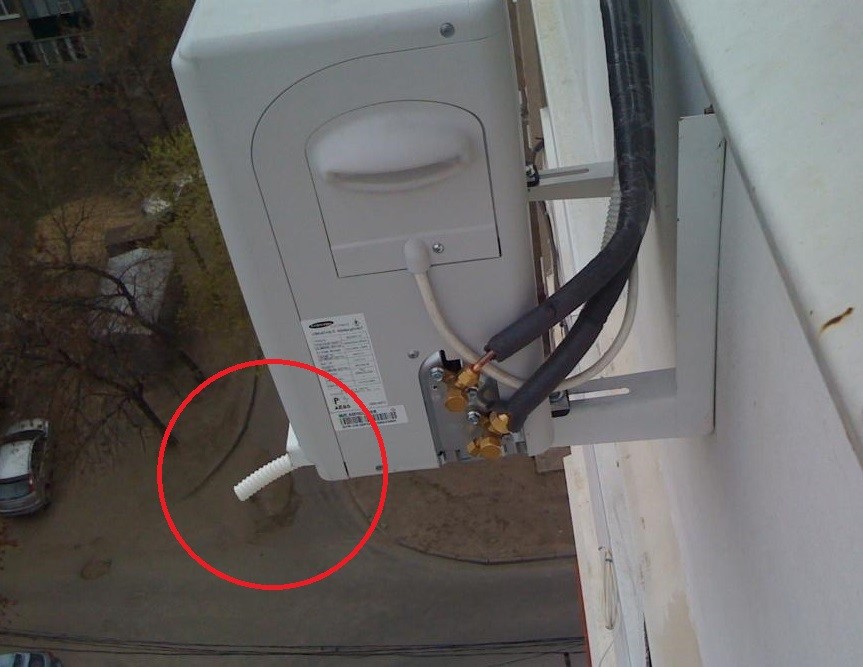
Outflow hose
To fix this, it is enough to bend the external drainage hose (goes outside) so that the wind stops blowing into the system. Another option is to additionally install a siphon for the air conditioner, which will drain excess fluid into the sewer. Then gurgling during the wind is almost completely eliminated.
Another reason is the strong kink of the drainage tube between the external and internal blocks. Water accumulates in the bends, and when the wind blows from the street, this same sound arises.
Buzz and noise
Sometimes the air conditioner during operation for some reason periodically buzzes. This applies to the external unit (located on the street) and the indoor (located in the room).
A self-cleaning system that is turned off can make noise. This sound is the norm.
Occasionally, a program crashes that controls the interaction of split system units. Then one of the blocks may suddenly start to work in the off state.In this case, the air conditioner needs to be reprogrammed so that the indoor unit can again successfully synchronize with the external one.
However, the most common causes of hum are heavy fan pollution, dust, fluff, or a raid by an insect colony (bees, wasps). Under such conditions, the fan blades begin to give a different load on the core during rotation. As a result, there is an imbalance of internal structures, vibration, and the device begins to make a lot of noise.
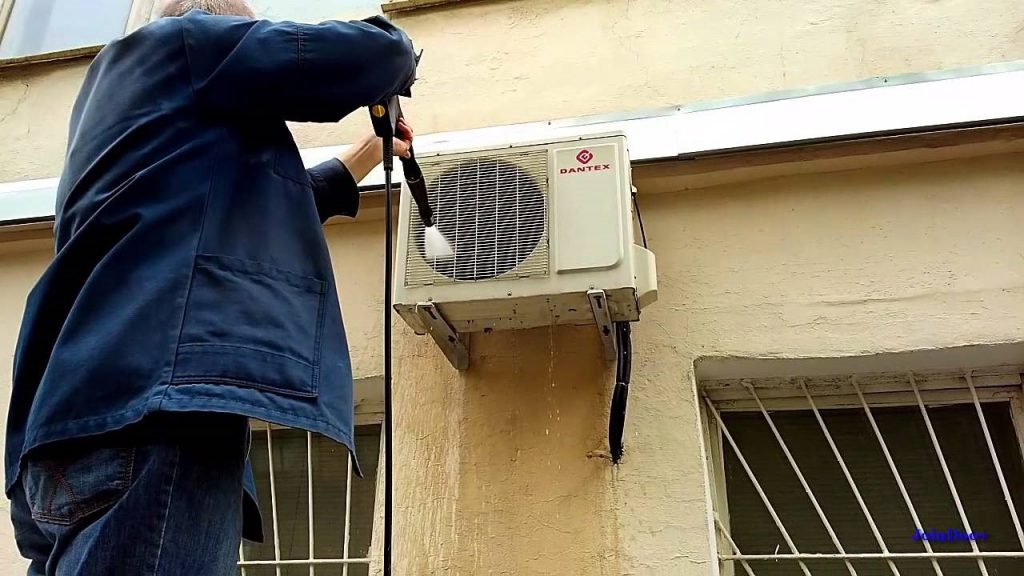
The process of cleaning the external unit of the split system
Less likely to occur is mechanical failure:
- The bearing was not lubricated enough and then failed.
- A foreign object or dust has fallen inside the mechanism.
- Buzz when turned on - perhaps the electric motor does not have enough voltage from the mains to start. It is necessary to check the wiring in the room for operability and the presence of bare insulation.
- Damage or deterioration of the internal parts of the air conditioner (for example, deformation of one of the fan blades or severe wear of the compressor).
Squelching and the sound of falling drops
The sound of droplets falling or splattering of liquid when the compressor is turned on is unlikely to mean serious damage. In the first case, condensation forms during the operation of the defrost mode. In the second - the sound of refrigerant flowing to the bottom of the track.
Knock and clicks off
If the air conditioner case was made of low-quality plastic, sharp loud clicks may appear before and after switching on. This is a reaction to temperature changes. You can fix it only by buying another model of a split system with better plastic, where it will not deform so much when switching modes.
Trouble-shooting
In order for the equipment to serve as long as possible, it must be regularly cleaned and carried out a technical inspection. The frequency of checks directly depends on the frequency of use of the air conditioner, as well as on the dustiness of the room and the environment in which the split system is placed.
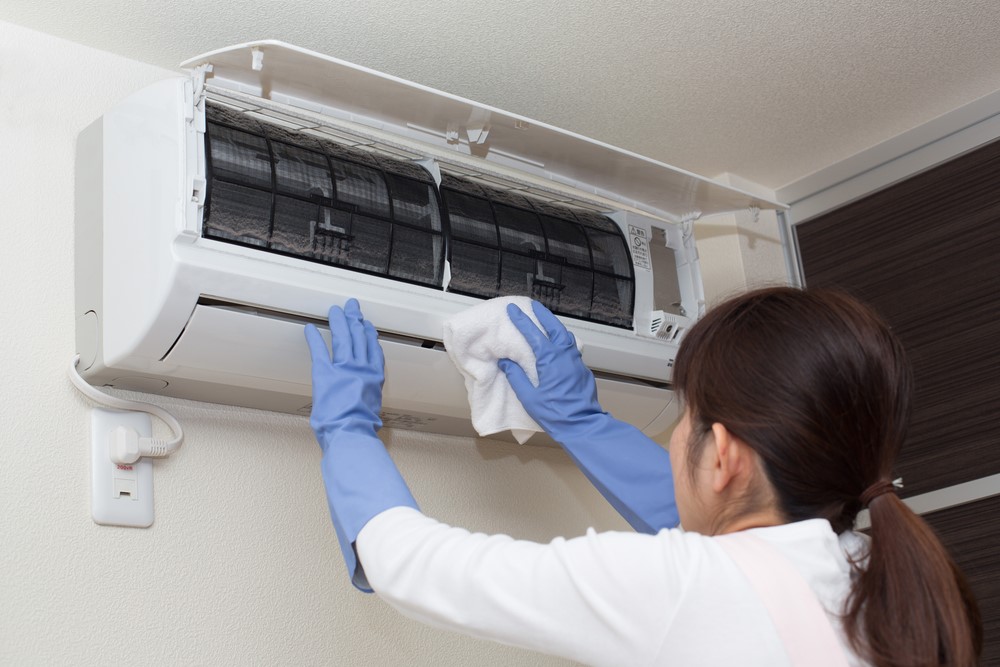
Self-cleaning the air conditioner from contamination
For an average apartment, it is enough to clean the indoor unit from dust and dirt at least once every couple of weeks. External - a couple of times a year. Another signal that it is time to flush internal parts from dirt - the device has ceased to fully condition the room.
Do it yourself
At home, maintenance of an air conditioner comes down to cleaning it from dust and dirt. More complex work is best left to professionals.
Before you begin, you need to carefully study the attached instructions. Although the overall design of all air conditioners is the same, still in the details it may differ. And before disassembling it is better to learn about them right away.
Do not forget to turn off the power, and after cleaning, wait at least half an hour before turning it on.
Cleaning the filters of the indoor unit is carried out in the most usual way - they are substituted under a stream of warm clean water. Do not add detergents to it. It is recommended that this procedure be performed at least once a week. To speed up the process can use a handheld vacuum cleaner, and be very careful: the filter may break or bend.
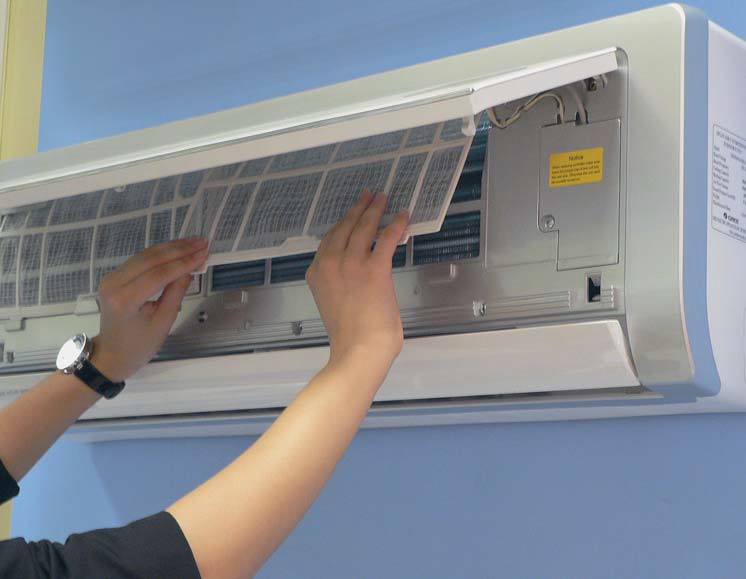
Removing the filters of the internal unit of the split system
It is better not to clean the external unit yourself, unless it is attached to the wall of the building at a low height. This procedure does not need to be carried out as often: only 1-2 times a year. Usually, masters who can use the special equipment to rinse as efficiently as possible are called up for such work.
The air heat exchanger can also be cleaned independently (with a vacuum cleaner or steam). Often it is located immediately under the cover of the air conditioner.
Why you need to contact the service center
Naturally, repairing the internal parts yourself is not recommended. The same applies to charging refrigerant and cleaning the outdoor unit of the split system.
Before starting maintenance or repair, a service center representative will hear the owner’s complaints. Based on them, it will conduct its own device diagnostics. Then a full range of work will be carried out:
- Cleaning the air filters of the indoor and outdoor unit
- Flushing the drainage system
- Vacuum tubes and freon refueling
- Lubrication of parts
- Minor repairs if required
However, if the compressor was broken, repairing it will most likely exceed the cost of the air conditioner itself. It’s easier to buy a new one.
If you hear unusual sounds for the device, you need to find out the cause as soon as possible, otherwise the problem may intensify up to a complete breakdown. Prevention requires regular maintenance.

